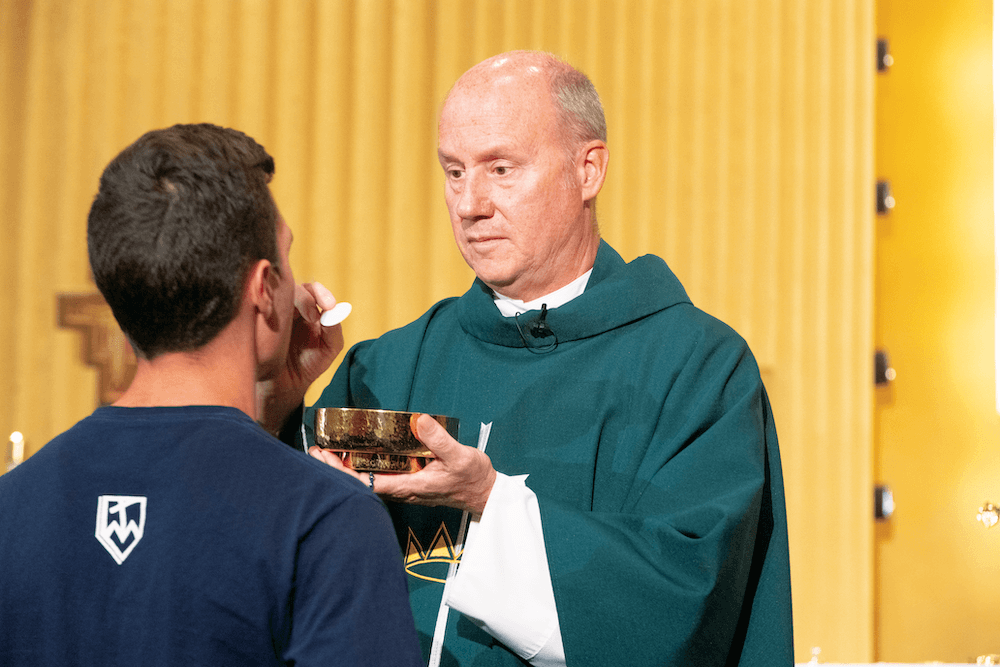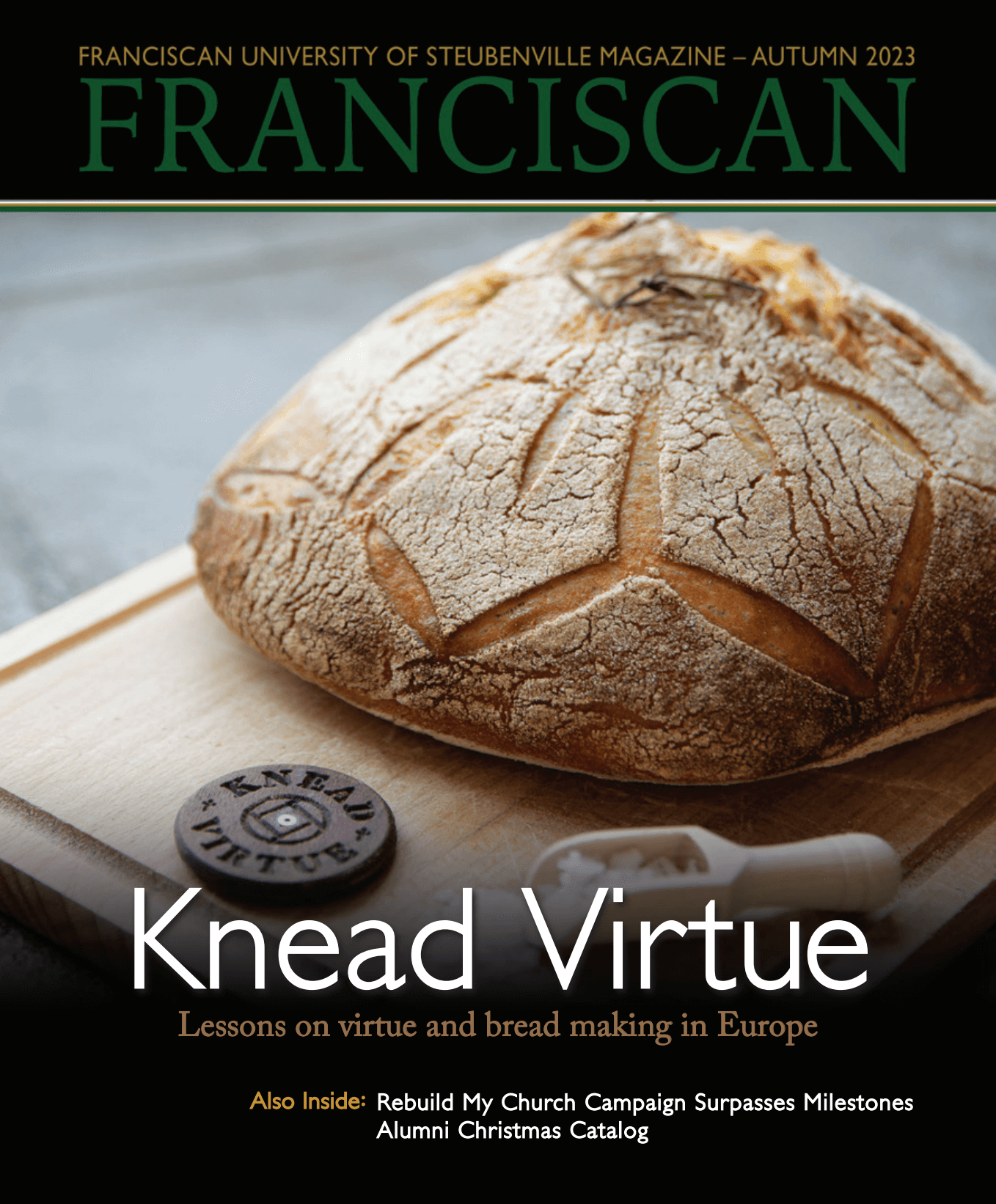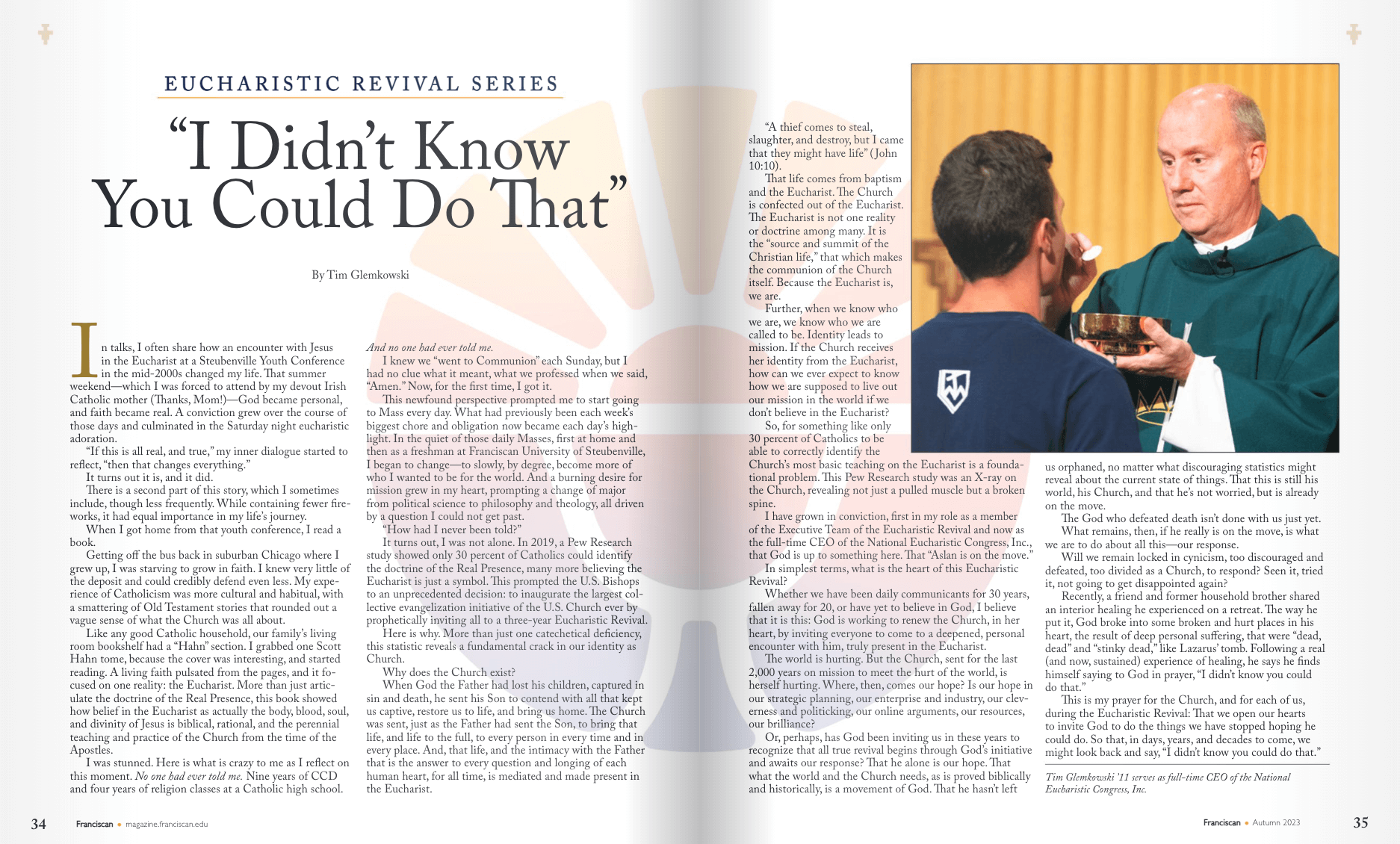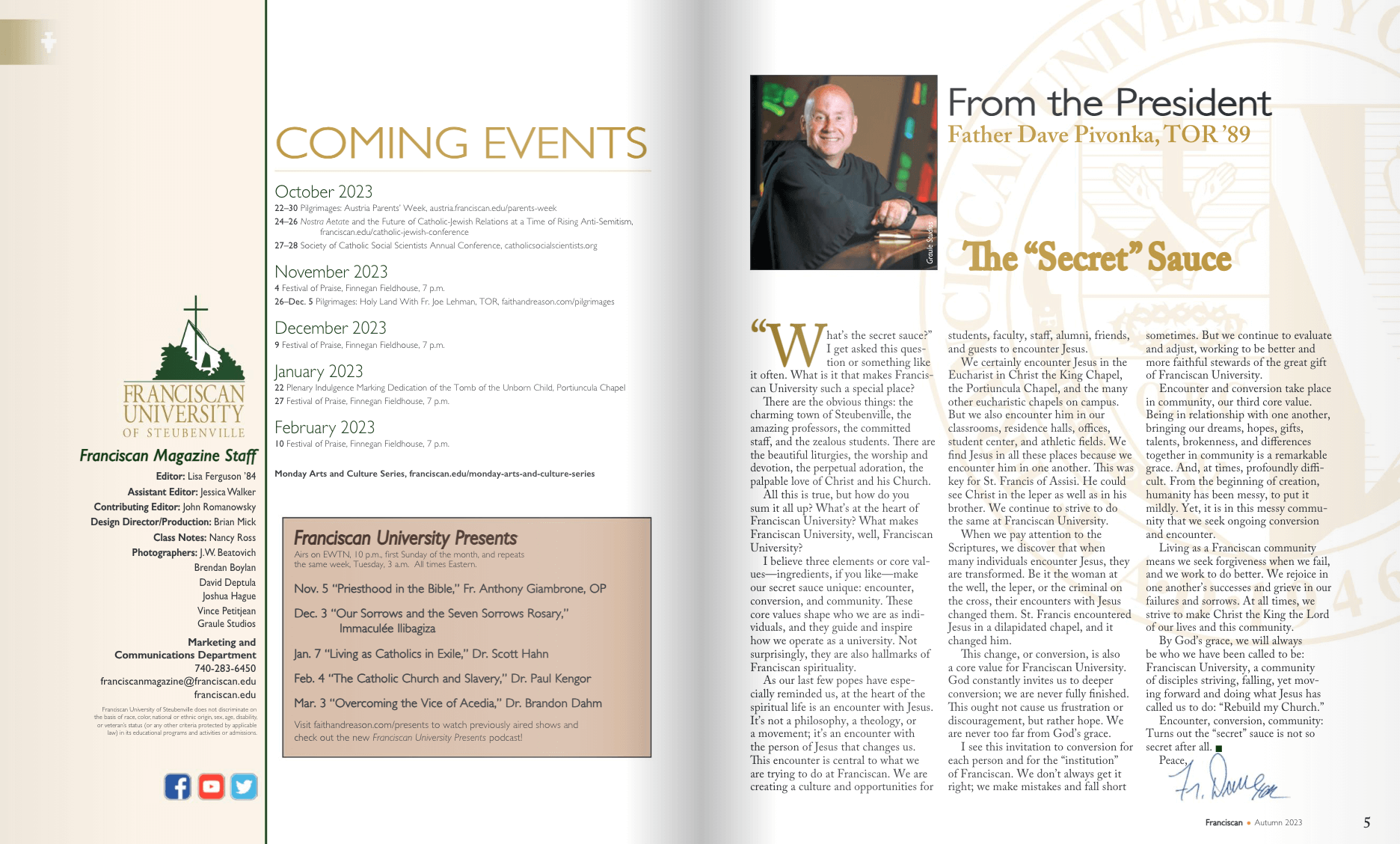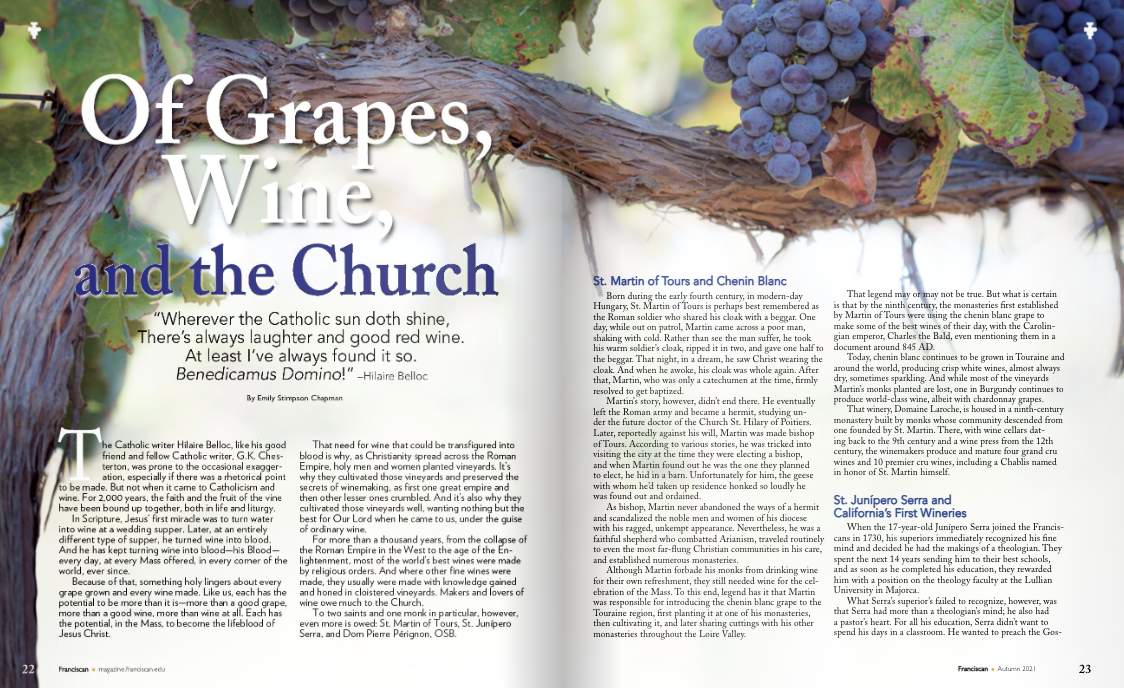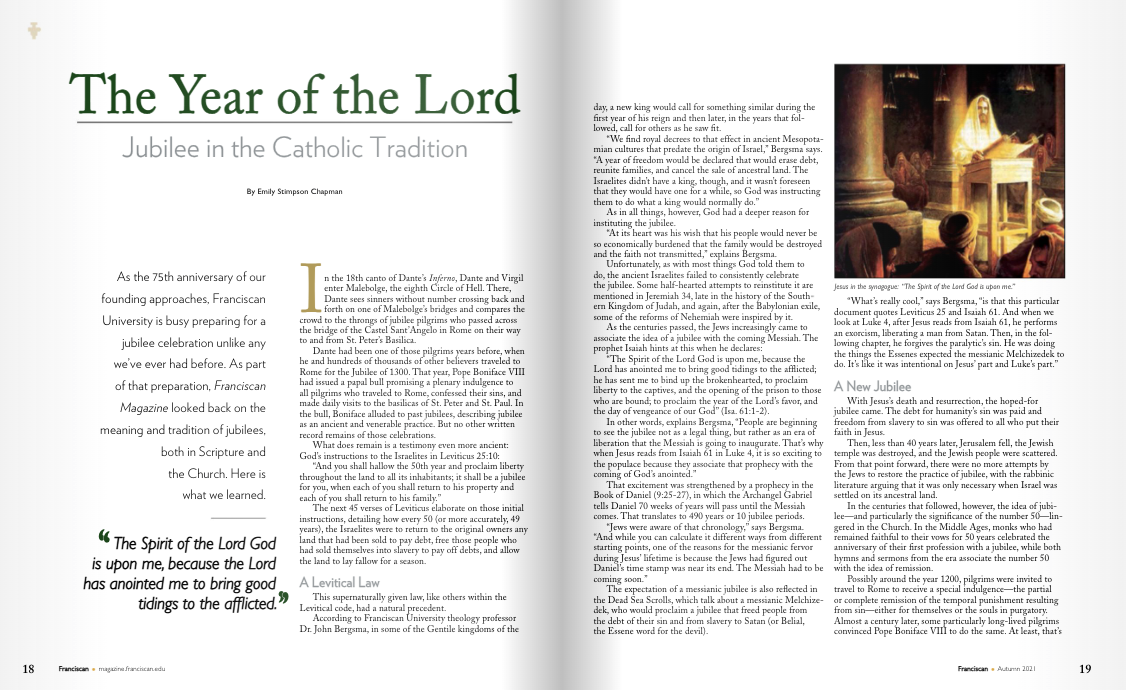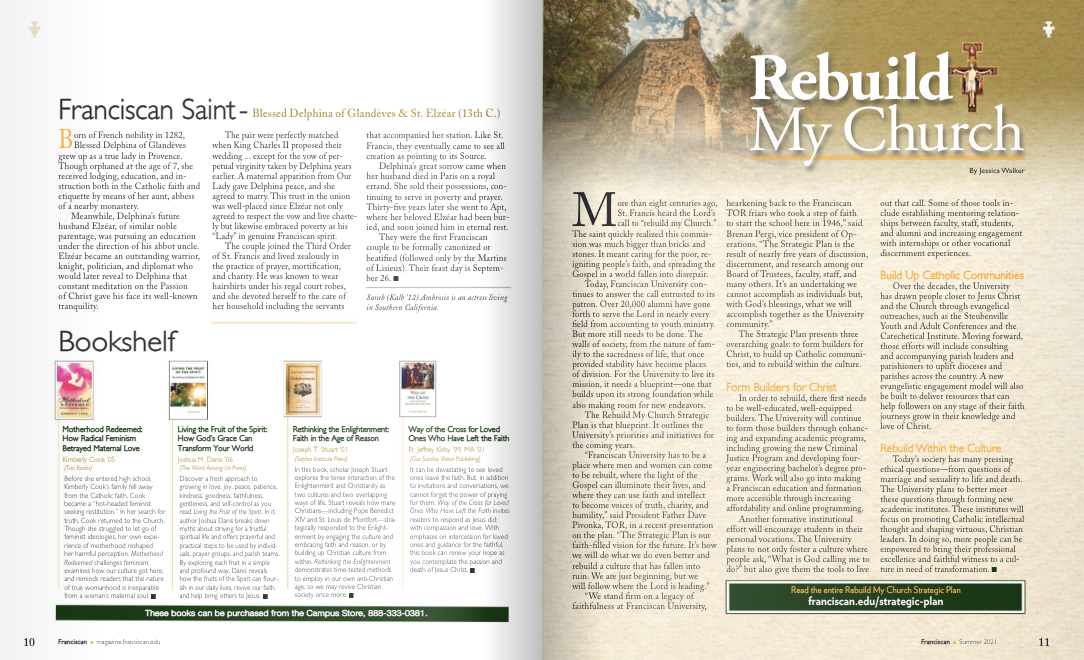In talks, I often share how an encounter with Jesus in the Eucharist at a Steubenville Youth Conference in the mid-2000s changed my life. That summer weekend—which I was forced to attend by my devout Irish Catholic mother (Thanks, Mom!)—God became personal, and faith became real. A conviction grew over the course of those days and culminated in the Saturday night eucharistic adoration.
“If this is all real, and true,” my inner dialogue started to reflect, “then that changes everything.”
It turns out it is, and it did.
There is a second part of this story, which I sometimes include, though less frequently. While containing fewer fireworks, it had equal importance in my life’s journey.
When I got home from that youth conference, I read a book.
Getting off the bus back in suburban Chicago where I grew up, I was starving to grow in faith. I knew very little of the deposit and could credibly defend even less. My experience of Catholicism was more cultural and habitual, with a smattering of Old Testament stories that rounded out a vague sense of what the Church was all about.
Like any good Catholic household, our family’s living room bookshelf had a “Hahn” section. I grabbed one Scott Hahn tome, because the cover was interesting, and started reading. A living faith pulsated from the pages, and it focused on one reality: the Eucharist. More than just articulate the doctrine of the Real Presence, this book showed how belief in the Eucharist as actually the body, blood, soul, and divinity of Jesus is biblical, rational, and the perennial teaching and practice of the Church from the time of the Apostles.
I was stunned. Here is what is crazy to me as I reflect on this moment. No one had ever told me. Nine years of CCD and four years of religion classes at a Catholic high school. And no one had ever told me.
I knew we “went to Communion” each Sunday, but I had no clue what it meant, what we professed when we said, “Amen.” Now, for the first time, I got it.
This newfound perspective prompted me to start going to Mass every day. What had previously been each week’s biggest chore and obligation now became each day’s highlight. In the quiet of those daily Masses, first at home and then as a freshman at Franciscan University of Steubenville, I began to change—to slowly, by degree, become more of who I wanted to be for the world. And a burning desire for mission grew in my heart, prompting a change of major from political science to philosophy and theology, all driven by a question I could not get past.
“How had I never been told?”
It turns out, I was not alone. In 2019, a Pew Research study showed only 30 percent of Catholics could identify the doctrine of the Real Presence, many more believing the Eucharist is just a symbol. This prompted the U.S. Bishops to an unprecedented decision: to inaugurate the largest collective evangelization initiative of the U.S. Church ever by prophetically inviting all to a three-year Eucharistic Revival.
Here is why. More than just one catechetical deficiency, this statistic reveals a fundamental crack in our identity as Church.
Why does the Church exist?
When God the Father had lost his children, captured in sin and death, he sent his Son to contend with all that kept us captive, restore us to life, and bring us home. The Church was sent, just as the Father had sent the Son, to bring that life, and life to the full, to every person in every time and in every place. And, that life, and the intimacy with the Father that is the answer to every question and longing of each human heart, for all time, is mediated and made present in the Eucharist.
“A thief comes to steal, slaughter, and destroy, but I came that they might have life” ( John 10:10).
That life comes from baptism and the Eucharist. The Church is confected out of the Eucharist. The Eucharist is not one reality or doctrine among many. It is the “source and summit of the Christian life,” that which makes the communion of the Church itself. Because the Eucharist is, we are.
Further, when we know who we are, we know who we are called to be. Identity leads to mission. If the Church receives her identity from the Eucharist, how can we ever expect to know how we are supposed to live out our mission in the world if we don’t believe in the Eucharist?
So, for something like only 30 percent of Catholics to be able to correctly identify the Church’s most basic teaching on the Eucharist is a foundational problem. This Pew Research study was an X-ray on the Church, revealing not just a pulled muscle but a broken spine.
I have grown in conviction, first in my role as a member of the Executive Team of the Eucharistic Revival and now as the full-time CEO of the National Eucharistic Congress, Inc., that God is up to something here. That “Aslan is on the move.”
In simplest terms, what is the heart of this Eucharistic Revival?
Whether we have been daily communicants for 30 years, fallen away for 20, or have yet to believe in God, I believe that it is this: God is working to renew the Church, in her heart, by inviting everyone to come to a deepened, personal encounter with him, truly present in the Eucharist.
The world is hurting. But the Church, sent for the last 2,000 years on mission to meet the hurt of the world, is herself hurting. Where, then, comes our hope? Is our hope in our strategic planning, our enterprise and industry, our cleverness and politicking, our online arguments, our resources, our brilliance?
Or, perhaps, has God been inviting us in these years to recognize that all true revival begins through God’s initiative and awaits our response? That he alone is our hope. That what the world and the Church needs, as is proved biblically and historically, is a movement of God. That he hasn’t left us orphaned, no matter what discouraging statistics might reveal about the current state of things. That this is still his world, his Church, and that he’s not worried, but is already on the move.
The God who defeated death isn’t done with us just yet.
What remains, then, if he really is on the move, is what we are to do about all this—our response.
Will we remain locked in cynicism, too discouraged and defeated, too divided as a Church, to respond? Seen it, tried it, not going to get disappointed again?
Recently, a friend and former household brother shared an interior healing he experienced on a retreat. The way he put it, God broke into some broken and hurt places in his heart, the result of deep personal suffering, that were “dead, dead” and “stinky dead,” like Lazarus’ tomb. Following a real (and now, sustained) experience of healing, he says he finds himself saying to God in prayer, “I didn’t know you could do that.”
This is my prayer for the Church, and for each of us, during the Eucharistic Revival: That we open our hearts to invite God to do the things we have stopped hoping he could do. So that, in days, years, and decades to come, we might look back and say, “I didn’t know you could do that.”
Tim Glemkowski ’11 serves as full-time CEO of the National Eucharistic Congress, Inc.



